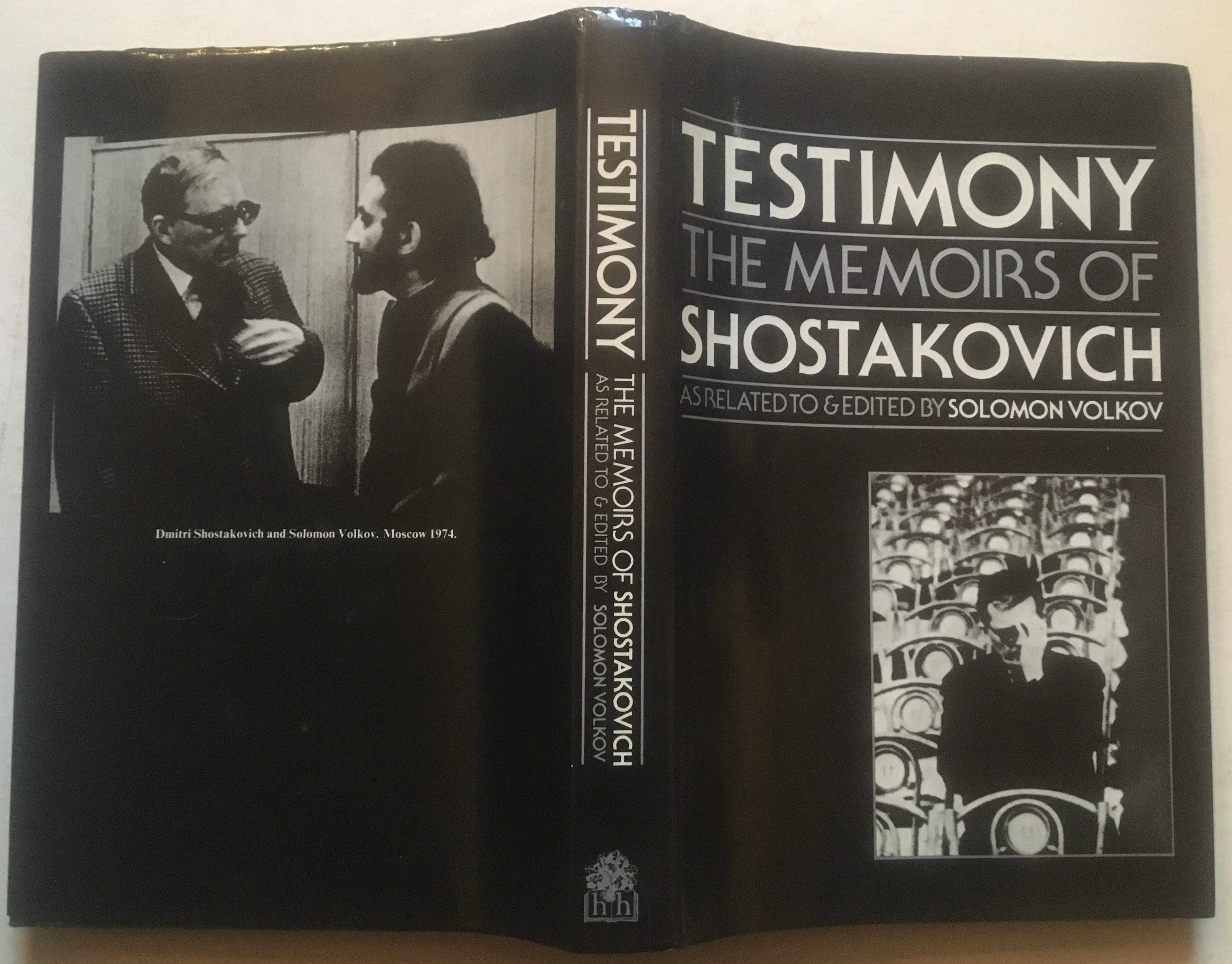Abstract
While Testimony, the supposed 'Memoir' of Dmitri Shostakovich, has been long discredited, it continues to poison the legitimacy of Shostakovich study and remains an object of faith in certain. More than Dmitri Shostakovich’s music will be incorporated in the soundscape; anticipate a selection of relevant Russian greats. The original ‘TESTIMONY’ was an international best seller in the late ’70s, his memoirs dictated to a young musicologist, Solomon Volkov. Testimony: the memoirs of Dmitri Shostakovich Item Preview remove-circle Share or Embed This Item.
The life, politics, and music of Dmitri Dmitriyevich Shostakovich have been subjects of extreme controversy. Despite the turmoil of his dealings with Stalin, many people thought of him as a loyal servant of Russia and a masterful composer. It was not until the publication in 1979 of a book called Testimony: The Memoirs of Dmitri Shostakovich surfaced that debates began to take form that would eventually charge into the realm of violent disputes from many sides. This book, written by Solomon Volkov, portrayed Shostakovich as a bitter dissident. One year later, an American researcher and specialist in Russian and Soviet music by the name of Laurel Fay responded to Testimony with an article in The Russian Review entitled “Shostakovich Versus Volkov: Whose Testimony?” in which she brought forth evidence of falsification. Presently, Shostakovich researchers are often split into two schools of thought: revisionist and anti-revisionist. The revisionists agree with Volkov’s portrayal in Testimony that Shostakovich was indeed a secret dissenter. The anti-revisionist views cover a much broader spectrum, but many reject the authenticity of Testimony and are of the opinion that to think of the Russian composer as a dissenter is irrelevant or entirely false, some to more extent than others. Testimony seems to lie at the heart of these debates, and it is around these purported memoirs and the evidence for and against them that this paper will be focusing on. While the memoirs of Testimony and its claims of authenticity must be treated with caution, the Testimony-portrayal of Shostakovich corresponds with the views of his friends and family and therefore provides valuable insight into the composer’s life and state of mind.
Volume
10
Issue
1

Article Number
1
DOI
10.15385/jmo.2019.10.1.1

Recommended Citation
Bahorik, Hanna (2019) 'Shostakovich and the Memoirs,' Musical Offerings: Vol. 10 : No. 1 , Article 1.
DOI: 10.15385/jmo.2019.10.1.1
Available at: https://digitalcommons.cedarville.edu/musicalofferings/vol10/iss1/1

Creative Commons License
This work is licensed under a Creative Commons Attribution-Noncommercial-No Derivative Works 4.0 License.
Disclaimer
DigitalCommons@Cedarville provides a publication platform for fully open access journals, which means that all articles are available on the Internet to all users immediately upon publication. However, the opinions and sentiments expressed by the authors of articles published in our journals do not necessarily indicate the endorsement or reflect the views of DigitalCommons@Cedarville, the Centennial Library, or Cedarville University and its employees. The authors are solely responsible for the content of their work. Please address questions to dc@cedarville.edu.
DOWNLOADS
Testimony Shostakovich Chicago Citation
Since April 19, 2019
Testimony Shostakovich
Included in
Ethnomusicology Commons, Fine Arts Commons, Musicology Commons
COinSTestimony Shostakovich Dvd
To view the content in your browser, please download Adobe Reader or, alternately,
you may Download the file to your hard drive.
NOTE: The latest versions of Adobe Reader do not support viewing PDF files within Firefox on Mac OS and if you are using a modern (Intel) Mac, there is no official plugin for viewing PDF files within the browser window.
